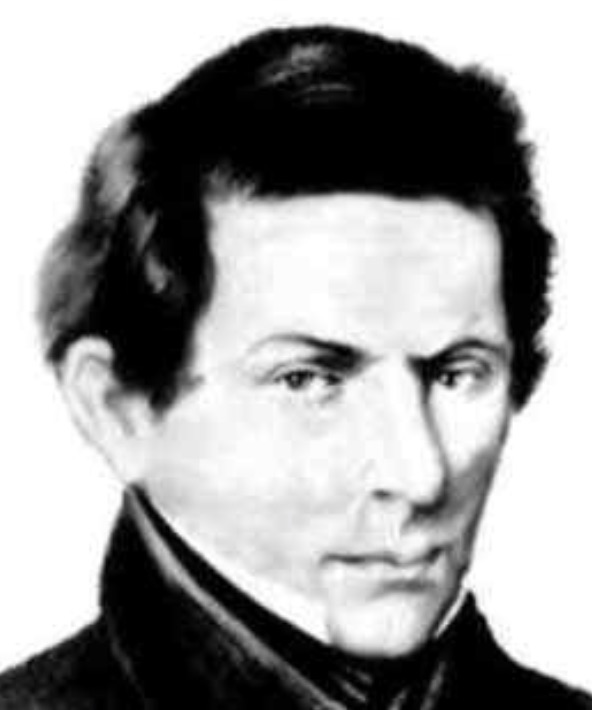
Nikolai Ivanovich Lobachevsky was born on December 1, 1792, in Nizhny Novgorod, Russia, into a family of modest means. When Nikolai was seven years old his father died and, in 1800, his mother moved with Nikolai and his two brothers to Kazan in western Russia. In 1802, Nikolai was given a government scholarship to enter the Kazan Gymnasium from which he graduated in 1807.
During this period, reforms introduced by Emperor Alexander 1 included the creation of publicly-funded tuition-free universities. On graduation from the Gymnasium, Nikolai enrolled in Kazan University that had be founded two years earlier. During his undergraduate years, he studied mathematics and physics. Describing the quality of the instruction, E B Vinberg, wrote in the European Mathematical Society Newsletter:
In the first years the atmosphere in the Department was quite favourable. The students were full of enthusiasm. They studied day and night to compensate for lack of knowledge. The professors, mainly invited from Germany, turned out to be excellent teachers, which was not common. Lobachevsky was highly successful in all courses he took.
One of those outstanding teachers was Martin Bartels, who taught a course on the history of mathematics, that presumably included a discussion of the Fifth Postulate in Euclid’s Elements. (The Fifth Postulate asserts: given a line and a point not on the line, a unique line can be drawn through the point parallel to the given line. ) Since Bartels communicated frequently with Gauss, who doubted that the Fifth Postulate could be deduced from the first four postulates, some historians speculate that Lobachevsky’s later challenge to the Fifth Postulate may have been transmitted indirectly from Gauss.
In 1811, Lobachevsky graduated with a Master’s Degree in mathematics and physics and three years later was appointed to a lectureship. His lectures were described as so “detailed and clear that they could be understood even by poorly prepared students,” 1816 he became an extraordinary professor, and in 1822 was appointed to a full professorship at Kazan University.
During his early years at Kazan, Lobachevsky worked on a variety of mathematical topics, but his most significant contributions were in the field of non-Euclidean geometry. He developed a geometry that did not assume as an axiom the Fifth Postulate of Euclidean geometry.
Lobachevsky’s work on non-Euclidean geometry was published in the 1820s and into the 1830s. However, it faced skepticism and opposition from the mathematical community, as it challenged centuries-old assumptions about the nature of space. Despite facing criticism for his non-Euclidean geometry, Lobachevsky continued his academic research. while also serving as the rector of Kazan University from 1827 to 1832. In addition to his administrative duties as rector, Lobachevsky lectured on many different fields including mathematical physics, hydrodynamics, differential equations, integration, and the calculus of variations. In 1834, he discovered a method for approximating the roots of algebraic equations.
Over time, the significance of Lobachevsky’s work in the development of what is now known as “non-Euclidean geometry”, became more widely recognized, especially as other mathematicians, such as János Bolyai and Carl Friedrich Gauss, independently developed similar ideas. However, Nikolai never lived to see the impact of his discoveries. In 1846, he was dismissed from the University of Kazan. Shortly after that, his oldest son died and Nikolai was devastated. His health deteriorated and eventually led to a blindness and ultimately his death on February 24, 1856.
Nikolai Lobachevsky is now regarded as one of the founders of non-Euclidean geometry, a field that has had a profound impact on mathematics and theoretical physics. The ultimate validation of his work came in 1916, with Einstein’s General Theory of Relativity that dipped into the toolbox of non-Euclidean geometry to describe the nature of the space in which we live.
